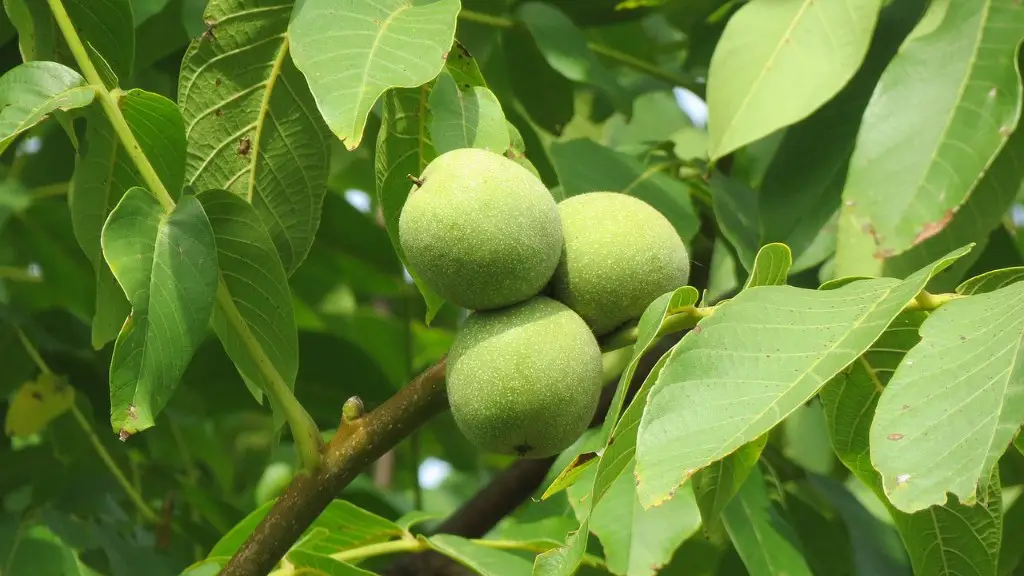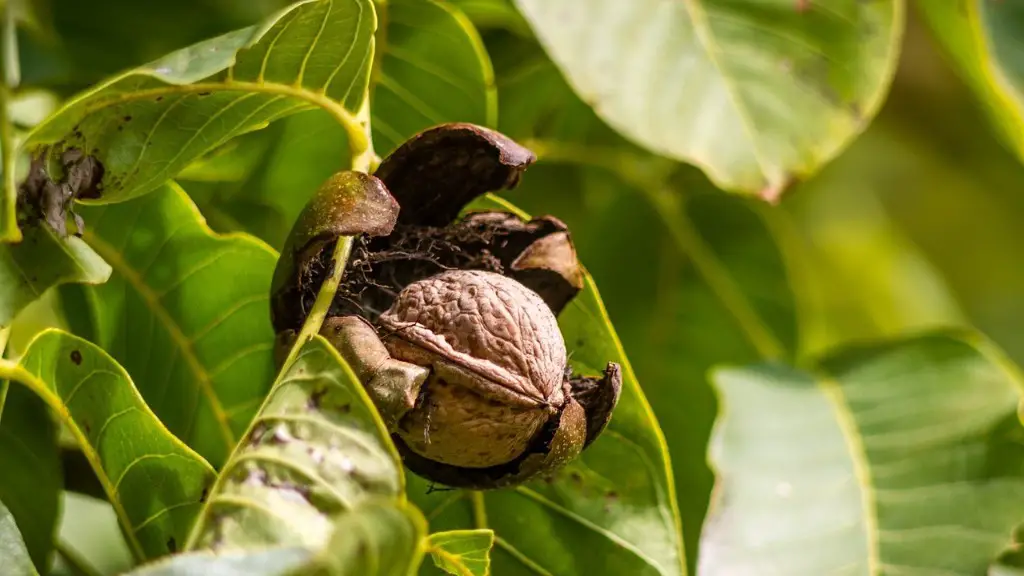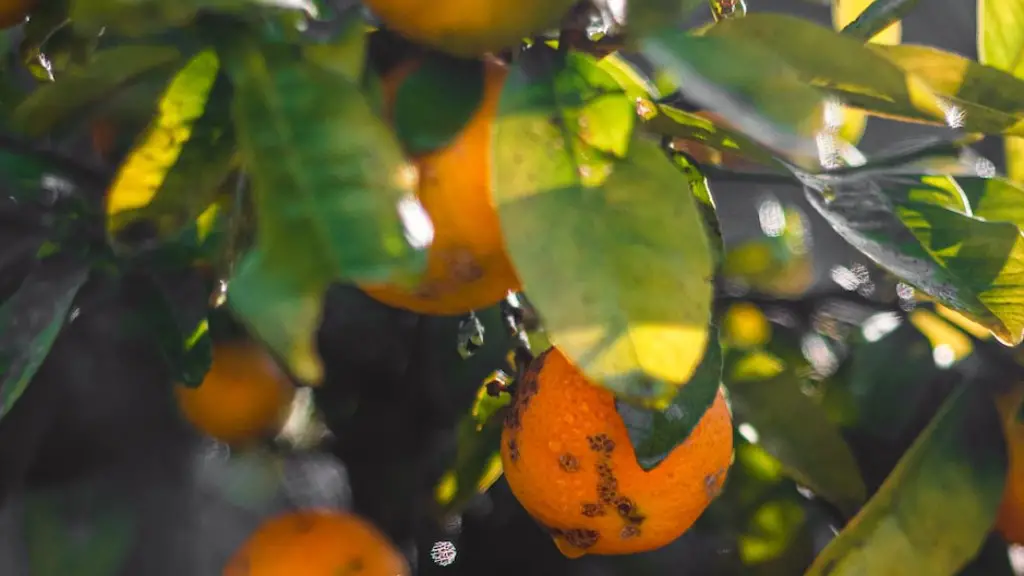The scientific name for the coconut palm is Cocos nucifera. It is a member of the palm tree family and the only living species of the genus Cocos. The word “coconut” can refer to the whole coconut palm, the seed, or the fruit, which is why it can be confusing. All three parts are used in different ways. The palm is used in construction, the seeds are used for crafts, and the fruits are used for food and drinks.
The palm tree is believed to have originated in the region that includes Malaysia, the Philippines, and Indonesia. Unlike other palm trees, the coconut palm is able to grow in a wide range of soils and climates. It is a hardy tree and can even withstand occasional flooding.
The coconut palm grows up to 30 m (100 ft) tall and has a single trunk. The trunk is fluted and can be up to 1 m (3 ft) in diameter. The leaves are pinnate and can be up to 6 m (20 ft) long. Each leaf has about 150-250 leaflets.
The coconut palm is dioecious, meaning that there are male and female plants. The female plants produce the fruit, which is a drupe
There is no scientific consensus on whether coconuts are related to tree nuts. However, most botanists agree that coconuts are more closely related to palm fruits than they are to tree nuts.
Can someone with tree nut allergy eat coconut?
While it is possible to have an allergic reaction to coconut, most people who are allergic to tree nuts can safely eat coconut. This is because coconuts are not considered a “botanical nut,” and are instead considered a fruit by the American College of Allergy, Asthma and Immunology (ACAAI). Therefore, if you have a tree nut allergy, you should be able to eat coconut without any problems.
If you have a nut allergy, it is important that you speak to your doctor about what foods to avoid. Even though coconut is not technically a nut, some people who are allergic to tree nuts (such as almonds, cashews, and walnuts) are also allergic to coconut. However, not all people with nut allergies are allergic to coconut, so it is important to speak to your doctor to find out if it is safe for you to eat.
Is coconut OK in a nut free school
If your child’s school is nut-free, you may be able to bring in coconuts as a snack. However, it’s always best to check with the school first, as some people do have allergies to coconuts.
The US Food and Drug Administration (FDA) recognizes coconut as a tree nut, and thus an allergen that must be declared. This can be confusing for some, as coconuts are not typically considered to be nuts and there are few instances of people being allergic to both true tree nuts and coconuts.
Coconuts are classified as tree nuts because they are the seeds of a drupe, which is a type of fruit with a hard pit. The FDA defines tree nuts as “any one of the edible nuts that grow on trees, such as almonds, Brazil nuts, cashews, hazelnuts, macadamia nuts, pecans, pistachios, walnuts, and coconuts.”
While it is possible to be allergic to both tree nuts and coconuts, it is relatively rare. Most people who are allergic to tree nuts can eat coconuts without any problem. However, if you are allergic to coconuts, it is important to avoid all tree nuts, as cross-reactivity between the two can occur.
Is Avocado considered a tree nut?
If you have a nut allergy, you may want to avoid avocados since they have similar proteins to chestnuts. However, if you’re only allergic to chestnuts and not other nuts, you should be fine eating avocados.
A nut can be defined as a one-seeded fruit. With that loose definition, a coconut can also be a nut. However, a coconut is not a true nut. A true nut, such as the acorn, are indehiscent or do not open at maturity to release its seeds.
What foods to avoid with tree nut allergy?
If you or someone you know has a tree nut allergy, be aware that tree nuts can be found in many unexpected places. Some common foods and products that may contain tree nuts include breakfast cereals, candy, crackers, cookies, chocolates, energy bars, flavored coffee, frozen desserts, marinade, barbeque sauces, some cold cuts, ice cream, alcoholic beverages (flavorings), lotions, shampoos, and soaps. Always check labels for warnings and contact the manufacturer if you are unsure about a product.
If you are allergic to coconuts, it is important to consult an allergist. There are only a few reports of coconut allergies in the medical literature, but it is still possible to have a coconut allergy. If you experience food allergy symptoms after eating coconut, you should consult an allergist to get a proper diagnosis.
Is Chick Fil A nut friendly
Our allergist has confirmed that Chick-Fil-A is generally a safe place to eat for those with peanut allergies. This is because the oil used is 100% refined peanut oil, which means that the protein from the peanuts has been removed and thus should not pose a risk for those with peanut allergies.
If you have an allergy to tree nuts or coconut, it is best to evaluate your own situation and look for products that are based on your specific allergy. If you are only allergic to tree nuts, then you can look for products that are made with coconut. However, if you are allergic to both tree nuts and coconut, then you might have to look for specialty products or make your own.
Can kids with peanut allergies eat coconut?
The coconut is classified as both a fruit and a nut. It is a fruit because it has a “hard, outer shell that contains the seeds” (ThinkQuest, n.d.). The coconut can also be classified as a nut because it has a “single large seed” (“Coconut,” n.d.). Many people with tree nut allergies can eat coconuts without having an allergic reaction because coconuts lack the proteins that people with tree nut allergies are sensitive to.
A tree nut allergy does not include mangoes.
Is pistachio a tree nut
An allergy to one tree nut does not necessarily mean an individual is allergic to other tree nuts, but certain tree nuts are closely related, including cashew with pistachio and pecan with walnut.
Coconuts are considered a tree nut by the United States Food and Drug Administration and must be listed as an ingredient on labels of packaged food products sold in the US according to the federal Food Allergen Labeling and Consumer Protection Act (FALCPA).
Is Nutella a tree nut?
Hazelnuts are a type of tree nut that is commonly used in baking and cooking. Although they are a common ingredient, hazelnuts can actually be quite a common allergy in Europe. If you have a hazelnut allergy, be sure to avoid pastries and chocolates that may contain them. Nut butters such as Nutella are also likely to contain hazelnuts, so it is best to avoid them as well.
Some olive oils may be processed in facilities that also process tree nuts, which could lead to cross-contamination. If you have an allergy to tree nuts, it’s important to check the label of your olive oil to make sure it doesn’t contain any tree nuts or that it hasn’t been processed in a facility that also processes tree nuts.
Are bananas a nut
Bananas are not nuts, they are berries. berries are small, fleshy fruits that have a thin skin and are often eaten whole.
As a vegan-friendly fruit, coconuts are a great alternative for those who are either lactose intolerant or living a vegan lifestyle. However, some harvesting techniques used by suppliers involve cruelty to monkeys, which has been widely criticised by PETA and many of our local supermarkets.
Conclusion
Coconuts are not related to tree nuts. Coconuts come from the Cocos nucifera tree and tree nuts come from a variety of different trees.
After doing some research, it seems that coconuts are not related to tree nuts. Coconuts are actually classified as drupes, which are fruits that have a hard outer layer. Tree nuts, on the other hand, are classified as seeds. Therefore, coconuts and tree nuts are not related.


